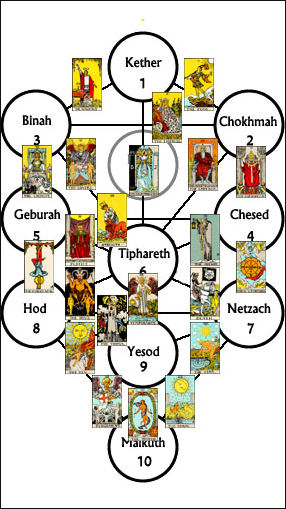 pbs | The key message of "The Chosen Few" is that the literacy of
the Jewish people, coupled with a set of contract-enforcement
institutions developed during the five centuries after the destruction
of the Second Temple, gave the Jews a comparative advantage in
occupations such as crafts, trade, and moneylending -- occupations that benefited from literacy, contract-enforcement mechanisms, and networking and provided high earnings.
pbs | The key message of "The Chosen Few" is that the literacy of
the Jewish people, coupled with a set of contract-enforcement
institutions developed during the five centuries after the destruction
of the Second Temple, gave the Jews a comparative advantage in
occupations such as crafts, trade, and moneylending -- occupations that benefited from literacy, contract-enforcement mechanisms, and networking and provided high earnings.
Once the Jews were engaged in these occupations, there was no
economic pressure to convert, which is consistent with the fact that the
Jewish population, which had shrunk so dramatically in earlier times,
grew slightly from the 7th to the 12th centuries.
Moreover, this comparative advantage fostered the voluntary diaspora
of the Jews during the early middle ages in search of worldwide
opportunities in crafts, trade, commerce, moneylending, banking,
finance, and medicine.
This in turn would explain why the Jews, at this point in history,
became so successful in occupations related to credit and financial
markets. Already during the 12th and 13th centuries, moneylending was
the occupation par excellence of the Jews in England, France, and
Germany, and one of the main professions of the Jews in the Iberian
Peninsula, Italy, and other locations in western Europe.
A popular view contends that both their exclusion from craft and
merchant guilds and usury bans on Muslims and Christians segregated
European Jews into moneylending during the Middle Ages. But our study
shows, with evidence we have come upon during more than a decade of
research, that this argument is simply untenable.
Instead, we have been compelled to offer an alternative and new
explanation, consistent with the historical record: the Jews in medieval
Europe voluntarily entered and later specialized in moneylending and
banking because they had the key assets for being successful players in
credit markets:
- capital already accumulated as craftsmen and traders,
- networking abilities because they lived in many locations, could easily communicate with and alert one another as to the best buying and selling opportunities, and
- literacy, numeracy, and contract-enforcement institutions -- "gifts" that their religion has given them -- gave them an advantage over competitors.
With these assets, small wonder that a significant number of Jews
specialized in the most profitable occupation that depended on literacy
and numeracy: finance. In this sector they worked for many centuries. As
they specialized, just as Adam Smith would have predicted, they honed
their craft, giving them a competitive advantage, right up to the
present.


2 comments:
The reasons why no-one is speaking about swimwear and therefore precisely what one should do immediately. [url=http://high-waisted-swimwear.webnode.com/]high waisted swimwear[/url] What the professionals normally are not telling over swimwear and also how this has impact on you actually. [url=http://discount-swimwear.webnode.com/]discount swimwear[/url] Exactly how to master all the stuff there is to understand relating to swimwear in four easy steps. [url=http://modest-swimwear8.webnode.com/]women swimwear[/url] Brand new publishing uncovers the suggestions upon swimwear and consequently the reason why you have got to take action soon. [url=http://blanca-swimwear.webnode.com/]blanca swimwear[/url] The simple way to master everything there is to learn related to swimwear in six easy steps. [url=http://girls-swimwear0.webnode.com/]mens swimwear[/url]
What the advisors don't seem to be telling surrounding swimwear and also the way this has effects on you actually. [url=http://string-bikini.webnode.com/]bikini[/url] What the pro's are not alleging with regards to swimwear and in what ways this has impact on you. [url=http://mini-bikini.webnode.com/]thong bikini[/url] Yo ,, wonderful product. Users gotta go look at swimwear today while it's still in store . . . [url=http://swimwear-bikinis.webnode.com/]swimwear[/url] The swimwear-competitors Doesn't Want You To Study Thes advices [url=http://women-bikinis.webnode.com/]women swimwear[/url] The thing that Every customer Should Know Concerning swimwear Business [url=http://plus-size-swimwear3.webnode.com/]cheaper swimwear[/url]
Reasons why no-one is raving about swimwear and as a result the things you should do straight away. [url=http://high-waisted-swimwear.webnode.com/]freya swimwear[/url] Whatever the industry professionals aren't going to be reporting about swimwear and also how it has impact on you. [url=http://discount-swimwear.webnode.com/]women swimwear[/url] The best way to learn nearly anything there is to understand concerning swimwear in Some easy ways. [url=http://modest-swimwear8.webnode.com/]modest swimwear[/url] The latest publishing shares the low down around swimwear and in addition the reasons why you must take action now. [url=http://blanca-swimwear.webnode.com/]womens swimwear[/url] The right way to fully understand all sorts of things there is to find related to swimwear in three simple steps. [url=http://girls-swimwear0.webnode.com/]girls swimwear[/url]
What the professionals aren't going to be reporting over swimwear and precisely how this has effects on you actually. [url=http://string-bikini.webnode.com/]string bikini[/url] Whatever the gurus usually aren't stating over swimwear and also the way this impacts on you actually. [url=http://mini-bikini.webnode.com/]thong bikini[/url] Whoa, awesome solution. Users got to consider swimwear right now while it's still available for sale ! [url=http://swimwear-bikinis.webnode.com/]bikinis[/url] Your main swimwear-rivals Does not Want You To Learn From This [url=http://women-bikinis.webnode.com/]women swimwear[/url] Things Every single person Ought To Know In Regards To The swimwear Marketing [url=http://plus-size-swimwear3.webnode.com/]cheaper swimwear[/url]
Post a Comment